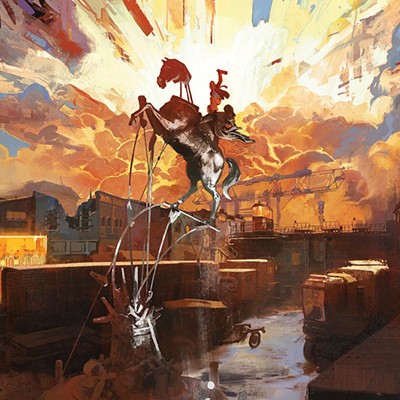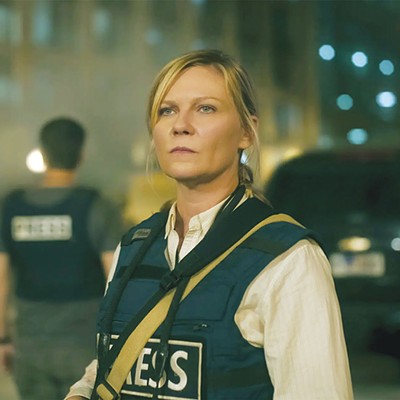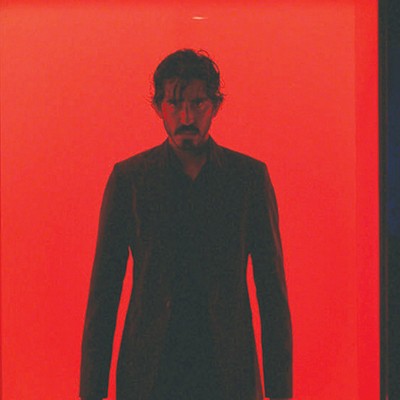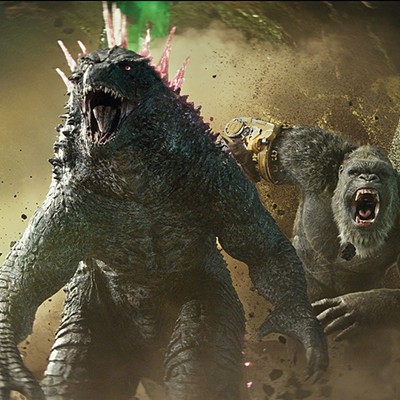Upon first viewing, The Assassin can almost be impenetrable. There is court intrigue, hidden motivations, honor taking precedence over logic, and, of course, graceful and gravity-defying wirework. Basically, all the things that make a wuxia martial arts movie great. But Director Hsiao-Hsien Hou and cinematographer Ping Bin Lee are not interested in telling a plot-driven, period martial arts story; instead they have made a film that runs solely on its absolutely stunning visual palette and subtext.
The plot mechanics are simple, though. The film takes place in 9th century China during the Tang Dynasty. Nie Yinniang (the luminous Qi Shu) was sent away from her home when she was ten years old because the military governor (Tian) she loved and was promised to is instead politically betrothed to another. Yinniang was raised by a nun who trained her, for more than a decade, to be a master swordswoman and who then sends her to Weibo, a remote province where Tian now rules. The nun has instructed the assassin to kill everything Tian loves and then to murder him last. The assassin's time in Weibo is the main crux of the film and her quandary about killing Tian is the emotional center of the film.
None of this matters though. Plot resolution comes completely secondary to the visuals, which are second to none in any other film released this year. This is a movie filled with luxurious long takes of the assassin, filmed through gossamer curtains as she watches people go about their happy lives while she decides whether to end them. There is a shot of a woman standing on a mountaintop as mist floats in that is the most purely cinematic image I have seen since Under the Skin.
The trailers are selling this film as a little bit Crouching Tiger, Hidden Dragon with a dash of House of Flying Daggers or Hero, but this expectation can only lead to disappointment. The martial arts in this film are brief moments of violence punctuating the long silence of this calm and beautiful world. Plus, the fight choreography is edited quickly and brutally, not allowing the viewer to take beauty from the movement and the forms. For a movie that has long, minute-plus shots, the fact that the action is so mercilessly chopped and given no time to breathe definitely seems like a stylistic choice, if one that doesn't immediately make sense logically.
The Assassin is less Crouching Tiger and more of a slowly paced, bloodless, sexless "Game of Thrones," if held under the sway of dream logic. The final 20 minutes of the film introduces magic into the story in a way that somehow feels completely outlandish, yet organic to the weird flow of the piece. It is a credit to the expert direction and cinematography that none of it ever feels disjointed. If dragons showed up during the closing credits it would have seemed inevitable and just another part of this flawless world they have created.
There were moments I had to remind myself that The Assassin was filmed in 2015. The sets, the locations, the costumes, and the performances place the film so squarely in Tang Dynasty China that it sometimes feels like an unearthed piece of cinema more than a Best Foreign Film Oscar contender. While the elliptical and somewhat obtuse nature of certain story elements will frustrate some viewers and leave them befuddled, for others it will create an even more absorbing experience.
The Assassin is not for everyone in the same way Under the Skin or the films of Michael Haneke aren't. It requires something of the viewer that isn't always easy to give: A complete submission to the material. If understanding what is happening every second is crucial to a viewer's enjoyment of a film, then it isn't for them. But if the viewer allows the film to swallow them up for 105 minutes, then it leaves a weird cinematic clarity behind. I'm not sure I understood most of what I saw, but I can't wait to try again.
The Assassin
Dir. Hou Hsiao-Hsien
Grade: A-
Now Playing at Tin Pan Theater























